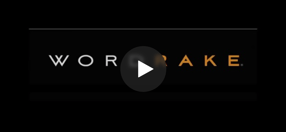Gary Kinder Imagines How Jack London Would Collaborate with WordRake
About twelve years ago, the editors at The Modern Library asked me to write introductions for the Jack London classics Klondike Tales and The Sea-Wolf. London’s experience and imagination were broad and vivid, his style terse and dramatic:
“They are more like children to him, even the hunters, and as children he treats them, descending perforce to their level and playing with them as a man plays with puppies.”
“The blood from his nose gushed in a scarlet stream over the feet of the helmsman.”
Nice, tightly-written, evocative stuff. That same summer, I taught a course at the Sun Valley Writers’ Conference on how to recognize useless words. I had just filed for a patent on teaching software how to do this; years later that patent would lead to other patents and eventually the algorithms that became the WordRake editing software. But to demonstrate the method to the Sun Valley crowd, and to prove that useless words appear even in the work of great writers, I used examples exclusively from London's The Sea-Wolf.
A year ago, I visited Jack London’s home. My wife and I were in the hills of Sonoma wine country at Jack London State Park where London had built “Wolf House,” a 15,000-square-foot stone monument with 26 rooms, nine chimneys, and an inside reflecting pool. When you are the most widely-read author in America, you can afford these things. But one month shy of completion, Wolf House burned, and London died at 40 before he could rebuild it, proving once again that if you want to make the gods laugh, tell them your plans.
As we walked around the charred ruins, I read that London liked technology. He had told the Wolf House architect in 1910 that he wanted a water heater, electric lighting, refrigeration, a built-in vacuum cleaning system, and laundry facilities including a “steam dryer rotary wringer.” When we returned from Sonoma, I wondered, Would London, the most renowned and popular writer of his time, have liked the technology in WordRake?
I found the old Sea-Wolf examples from Sun Valley and ran WordRake through them. Remember that London put pen to paper as one of the best writers in America; then he gave his manuscript to his wife to type and edit; then his editor at Macmillan edited what she typed and had the manuscript retyped; then a professional copy editor edited that draft line-by-line. Could there possibly be one unnecessary word left in that classic novel? I hit the “rake” button.
My Notes:
I've always envisioned WordRake as a collaborator: seeing things we're too close to see, too tired to recognize, or don’t know to look for. And when the software highlights the dull and unnecessary words, and we accept the edits, we often see even more ways to improve a sentence. Here’s how I imagine Jack London (or you) would collaborate with WordRake:
|
1. In point of fact, the The chief vent to this primal melancholy has been religion in its more agonizing forms.
|
1. This is a straight deletion, and London would accept it. "What was I thinking?" |
| 2. It was at At this moment that I chanced to glance glanced at Johnsen. |
2. After removing the first four crossed-out words, London agrees that chanced to glance works much better as glanced. "How did my wife miss this one?"
|
| 3. In fact, though Though his strength pervaded every action of his, it seemed but the advertisement of to advertise a greater strength that lurked within. |
"I especially like using that verb 'advertise,'" London says to himself. "It gives the sentence more punch." As he accepts the two edits, the phrase of his now appears unnecessary, so he removes those two words. With the new syntax, maybe he replaces a greater strength with an even greater strength . . . .
|
| 4. It never seemed to me that she walked, or, at least, walked after the ordinary manner of mortals. |
4. Deleting to me is a good start, but as WordRake draws his eye to that part of the sentence, London realizes he could take it further: She seemed never to walk . . . . “My editors never would have seen this one,” he muses. “That’s my job, to write like that” |
WordRake will not write your proposal, paper, brief, or report, but it will jumpstart your editing process and help you see ways to improve your writing you cannot see. Not every WordRake edit will be perfect--we're dealing with almost 200,000 English words and their permutations--but we will get it right 90%-95% of the time, so that whatever you send out for others to read will present you in the best light. Think about Jack London’s skill, about the layers of professional editing in The Sea-Wolf, and how WordRake still finds useless words. Now think about your own writing and the rough drafts you produce alone. Could WordRake help you do it faster and better?
WordRake is also available for Outlook, and I am delighted, because I know that feeling, that hesitation to hit the “Send” button: Is this good enough? What will they think of me when they read it? With WordRake in your Outlook email, you can hit “Send” with a little more confidence.



